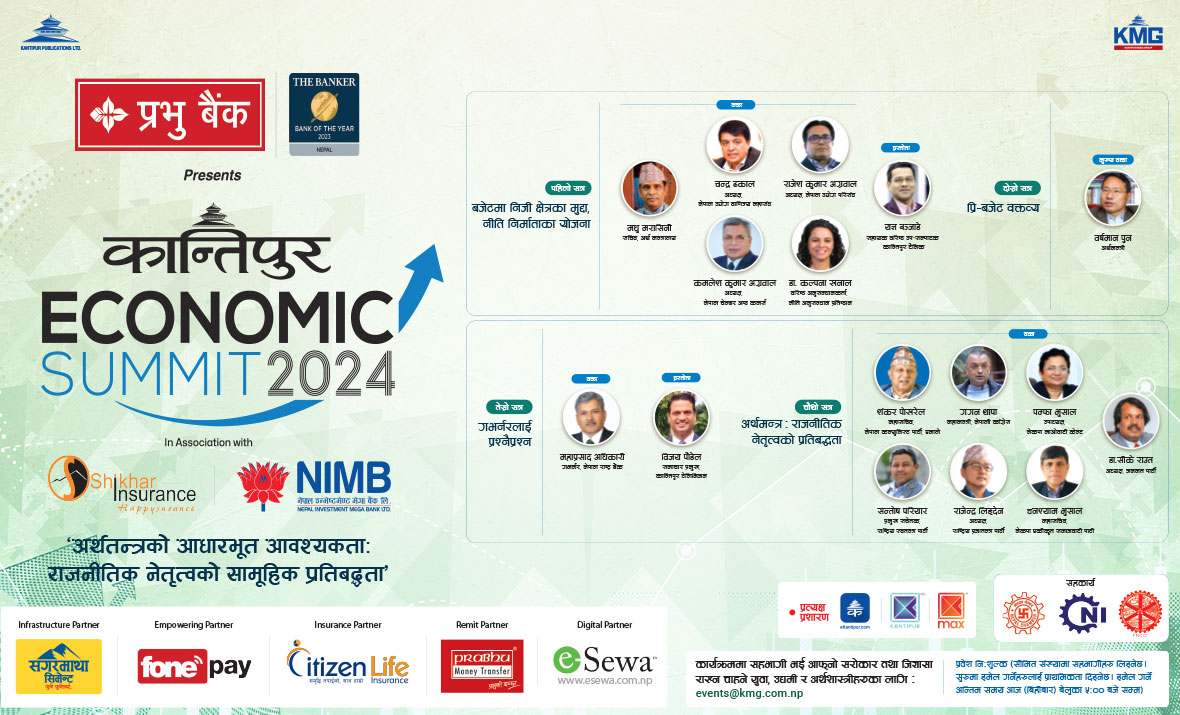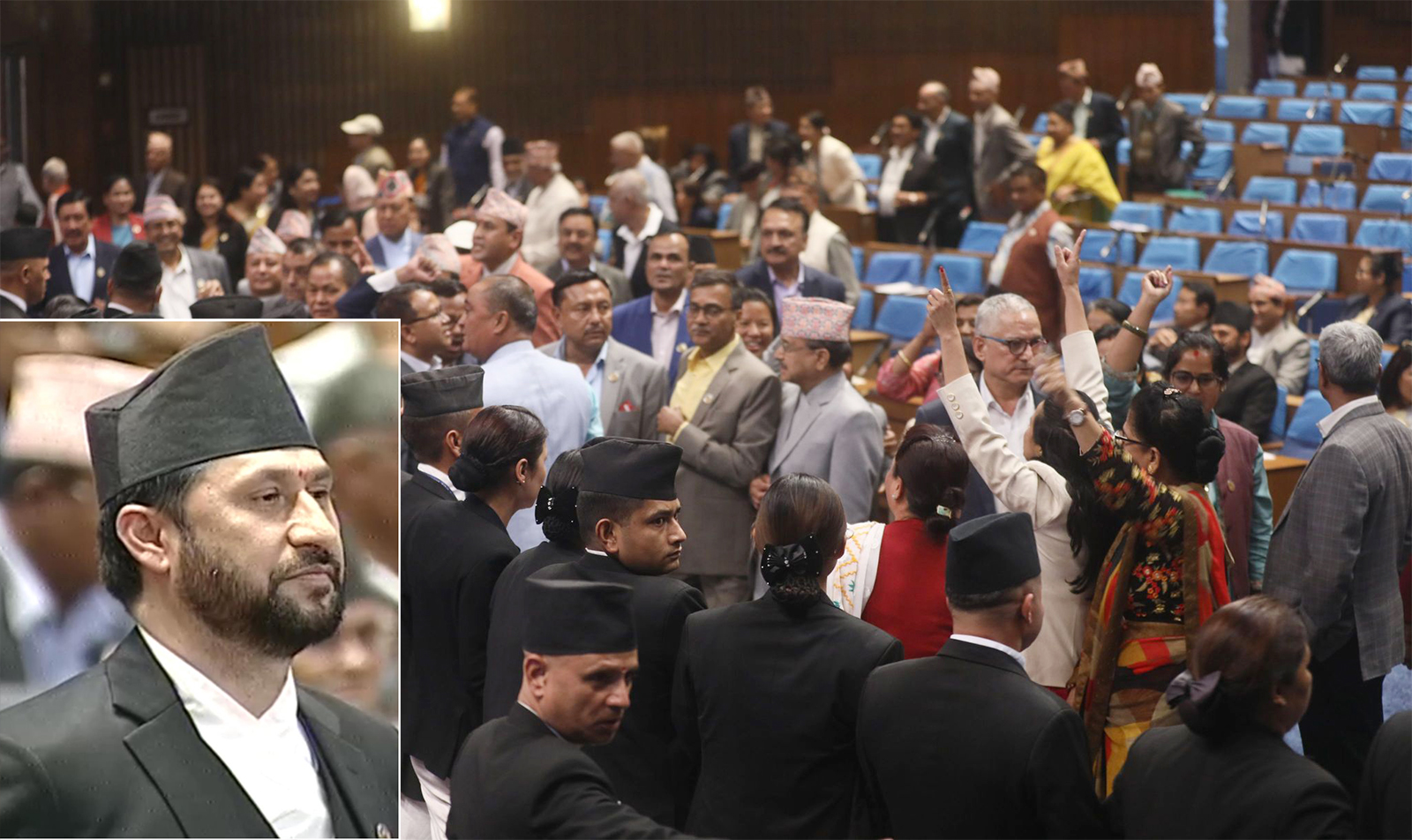A pathway to transitional justice
We use Google Cloud Translation Services. Google requires we provide the following disclaimer relating to use of this service:
This service may contain translations powered by Google. Google disclaims all warranties related to the translations, expressed or implied, including any warranties of accuracy, reliability, and any implied warranties of merchantability, fitness for a particular purpose, and noninfringement.


Point no. It is mentioned in 4- "Transitional justice bill, peace process and other matters related to it to maintain lasting peace in the country to be concluded without delay on the basis of consensus."



This point was also mentioned in the eight-point agreement made by the four parties on February 21. This is not a new consensus point. It is a commitment that has been repeated since the peace agreement but has not been followed at all.
The fact that transitional justice is being used as a card to play the dirty game of power and self-interest is not hidden. The leaders themselves have been accepting that shameful politics is being done over the suffering of the victims. Even now, it can be assumed that the agenda of transitional justice is dominant in the midst of changing the equation. UML had been playing with the strategy of coming to power by putting the Maoists in trouble on the issue of transitional justice. Some argue that the Maoists saw a comparative advantage in forming a government together with the UML rather than breaking the issue of transitional justice and the current equation was formed.
With the change in the power equation, it is suspected that the parties will change their position on transitional justice like a lizard changes its color. Given their past, that suspicion is natural. However, how long will the power continue to play the game of selfishness over the pain of the conflict victims? When will we put the interests of the country above the interest of the government and show the faith to give a legitimate solution to the transitional justice process through the amendment of the law and the establishment of a competent commission in accordance with the legitimate demands of the conflict victims? How long will it take to create a basis for lasting peace by addressing the consequences and causes of conflict? How long will the so-called democratic parties continue to be a factor in increasing the risk of new conflicts? How much more will weaken the moral ground of politics than this?
These and similar issues should be seriously reviewed by major parties. improve Be responsible. They should not lose their relevance for the country and the people. Do not irrigate 'populism' and 'heroism' which prove fatal to the overall health of democracy. This is the popular expectation.
The number one human rights issue of national and international concern is transitional justice. This is not a subject to be reminded of. As this issue escalates, the country's human rights image and credibility have also declined. The leadership of the government should be ashamed to repeat the commitment in the state of non-progress for years on the world stage. The more we delay in showing the will and ability to properly investigate and prosecute serious violations within the country, the more international interest will increase. It's growing.
In this perspective, what the victims and the civil society want is that the UML should not abandon the victim-oriented demands they have been raising after coming to power. Let them play a role in amending the bill so that they are addressed. Even the Nepali Congress, which has reached the chair of the opposition from the position that it should be decided quickly by establishing consensus between the parties, should not make a left or right move. The parties in the government or outside should honestly fulfill the responsibility of moving forward by imbibing the established values of human rights and the jurisprudential guidelines drawn by the Supreme Court.
The new parties do not seem to understand the sensitivity of this issue. Apart from talking about mechanical, technical and ritualistic things, they have not been able to show the ability to wait and make a valid decision after deepening its national and international importance. They should also self-examine. And, by adopting this subject, it can be seen that it played a meaningful role.
Bill passed only after amendment
The bill to amend the Commission for Investigation, Truth and Reconciliation Act, 2071 is pending in the Law, Justice and Human Rights Committee of the House of Representatives. It is said that the bill is in the final stage of discussion. Meanwhile, the report prepared by the committee on the amendment of the bill has been made public informally. Looking at that, it seems that the committee is moving in the direction of advancing the bill by making some improvements as a result of continuous creative pressure from stakeholders including victims and civil society. It appears to largely resolve the problem of defining murder as a serious violation of human rights. Arbitrary killings that are not justified based on the law of war can be considered as a positive thing to agree to amend the bill so that the killings of arbitrary nature are classified as serious violations and those amnesties are ineligible. According to the fact report, there was an agreement to address the demand of the victims that there should not be a majority of government representatives in the committee recommending the appointment of commissioners. According to the
report, if the bill is passed after the amendment, it seems that some of the concerns raised by the victims and civil society will be addressed. But serious flaws remain. If the law is not to be challenged immediately after the amendment, it is necessary to seriously review the many existing errors.
s are conditional on elements of serious human rights violations other than rape and serious sexual violence. The stipulation that a serious violation can only be considered a serious violation if it occurs "targeted against unarmed persons or the public" or "planned" seems problematic. Because of this condition, the investigation will not only establish that killings, disappearances, and torture must satisfy one of the thresholds of being targeted or planned against unarmed individuals or populations. Otherwise, the risk of making the cases of murder, disappearance and torture a subject of amnesty as a general human rights violation seems to remain. Similarly, the provision that torture must be 'inhuman' or 'cruel' to be a serious violation remains the same. Until the Supreme Court explains that torture itself is inhumane and cruel, it looks like it could pose a problem.
The proposed provision of additional three months for filing complaints with the commission is positive. However, it is only attracted in the context of cases of gender-based violence. In the absence of a gender-friendly environment, many victims of gender-based violence in the past could not come forward to file complaints. Insignificant complaints were received. In other violations, complaints may be missed for various reasons. In general, the door to complaints should be kept open in respect of all human rights violations. As long as the commission is in existence, if someone comes to the door with a complaint, how can they say that they will not look into their complaint? In case of not being able to overcome it, it may be justified to refer to the National Human Rights Commission or other related bodies. In the
bill, it is proposed to keep those directly or indirectly affected under the purview of the commission. However, the lack of a clear definition of indirectly affected can cause problems. In the bill, a provision has been proposed to form various units under the commission. Although this is positive, it would be better to point out that some committees will be formed under the leadership of the commissioner. For example, it may be practical to make a separate committee on an important issue like pardon, headed by the commissioner, hearing about whether or not pardon is acceptable in such a committee.
It is also important to learn from the practice of South Africa's Amnesty Committee. There seems to be indifference to the demand to clarify the time limit, to make the commissioner selection process transparent by arranging for public hearings, and to provide that if there is a reason why the case cannot be tried within one year based on the commission's recommendation, the case can be tried later with the permission of the court. Defining crimes against humanity as a separate crime, applying the principle of double jeopardy only in the context of judgments made by ordinary courts, providing for the possibility of prosecution for any violations that are not satisfied with the basis of amnesty and reconciliation, and the concerns of justice and compensation for child fighters within the scope of transitional justice. Demands such as inclusion are still neglected. To make the amendment acceptable, once the committee calls the stakeholders and listens to them, it is necessary to make reasonable efforts for further amendments. By doing this, the amendment process will gain legitimacy.
Competent commissioners and sufficient resources
No matter how good the law is, the transitional justice process cannot be passed if the commissioners who lead the commission and play a decisive role on behalf of the commission are not trustworthy, have subject knowledge and experience, and are moral. It should be noted that commissions in the past have not failed only because of bad laws. If the commissioners were able to work free from party influence, a lot of work could have been done under the existing legal arrangement.
The transitional justice process requires a person who can make reasonable decisions based on a comprehensive understanding of the constitution, international treaty provisions, national and international jurisprudence, and practical expediency. Also, when it is necessary to achieve the objective of finding the truth, there is a need for a commissioner who has the ability to call any office holder, elected or unelected, to the commission without hesitation and take a statement. Commissioners who show political loyalty or come with the blessings of leaders will achieve nothing but waste people's taxes and precious public time as in the past. The government's generosity in providing resources to create conditions where the commissions can work effectively is also expected. Don't repeat the past. Let's review the progress next year.
– Advocate Chapagain is the founding president of Juri Nepal.


 २१.१२°C काठमाडौं
२१.१२°C काठमाडौं















